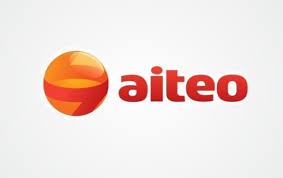BUSINESS

MOZAMBIQUE PARTNERS WITH AITEO EASTERN E&P TO BUILD MAJOR REFINERY
Mozambique is set to transform its energy sector with a groundbreaking agreement between its national petroleum company, PETROMOC, and Nigerian energy company Aiteo Eastern E&P. The partnership will lead to the construction of a state-of-the-art refinery with a capacity of 200,000 barrels of fuel per day.
The refinery, expected to be completed within the next 24 months, will significantly reduce Mozambique’s reliance on imported refined oil and produce a variety of essential fuels, including gasoline, diesel, naphtha, and Jet A1. In addition, the refinery will target the regional market, positioning Mozambique as an emerging key player in the African liquid fuel industry.
During the Mozambique Mining and Energy Conference, President Daniel Chapo praised the project as a game-changer for the nation. He noted that the refinery will increase storage capacity by 160,000 metric tonnes for liquid fuels and 24,000 metric tonnes for liquefied petroleum gas (LPG). Moreover, the project is expected to create significant job opportunities, particularly for young people, and provide a major boost to the country’s economy.
“This refinery will elevate Mozambique’s position in the energy sector and establish us as a key player in Africa’s oil market,” President Chapo stated. “This initiative reflects the strength of our resources and the reform-driven environment we’ve created to attract private investment.”
Mozambique currently depends heavily on oil imports, particularly from India, the UAE, Bahrain, Saudi Arabia, and Malaysia. The new refinery aims to reduce this dependency, similar to how Nigeria’s Dangote refinery has transformed the country from a net importer to a regional exporter of refined products.
Although the 24-month construction timeline is ambitious—considering that refineries typically take between three to eight years to complete—industry experts are optimistic that the project will reshape Africa’s oil trade dynamics and lessen Mozambique’s dependence on external suppliers.
In addition to the refinery, President Chapo unveiled plans for a new cross-border pipeline that will connect the port city of Beira to Zambia. The pipeline, expected to be completed in four years, will transport 3.5 million metric tons of petroleum annually. This will reduce road traffic on National Road Number 6, improving both logistical efficiency and road safety.
Together, these projects—the refinery and the pipeline—are poised to reshape Mozambique’s energy landscape, strengthen its energy security, and increase its role in regional and global energy markets. With these ambitious initiatives, the country is on track to establish itself as a key energy hub in Africa.
"This represents a significant development in our ongoing coverage of current events."— Editorial Board









